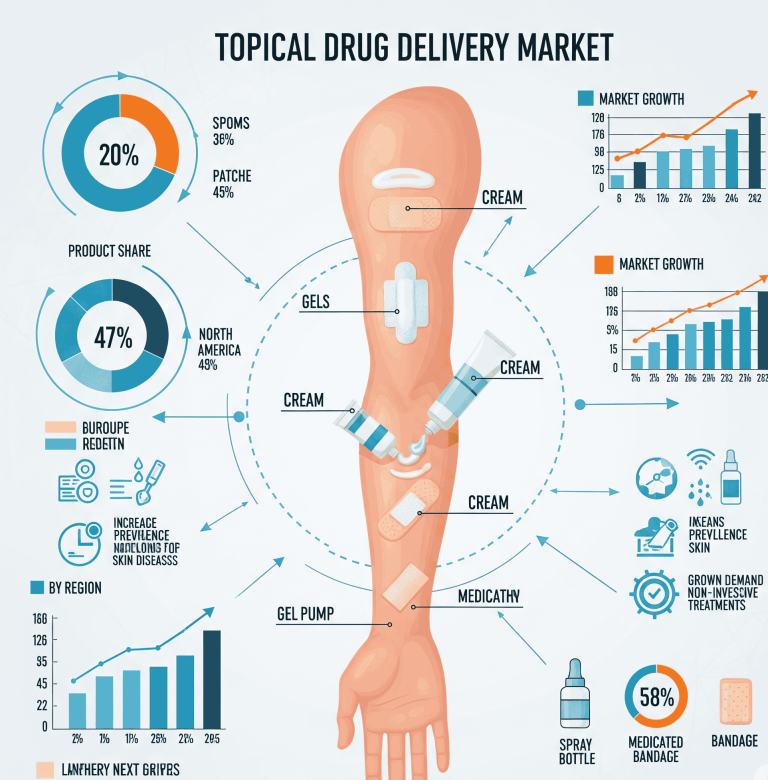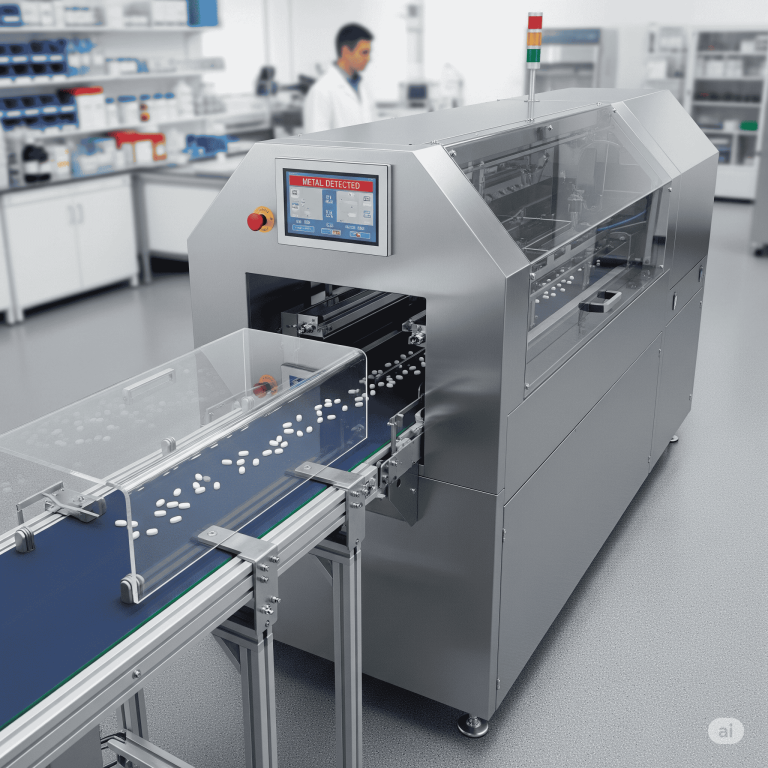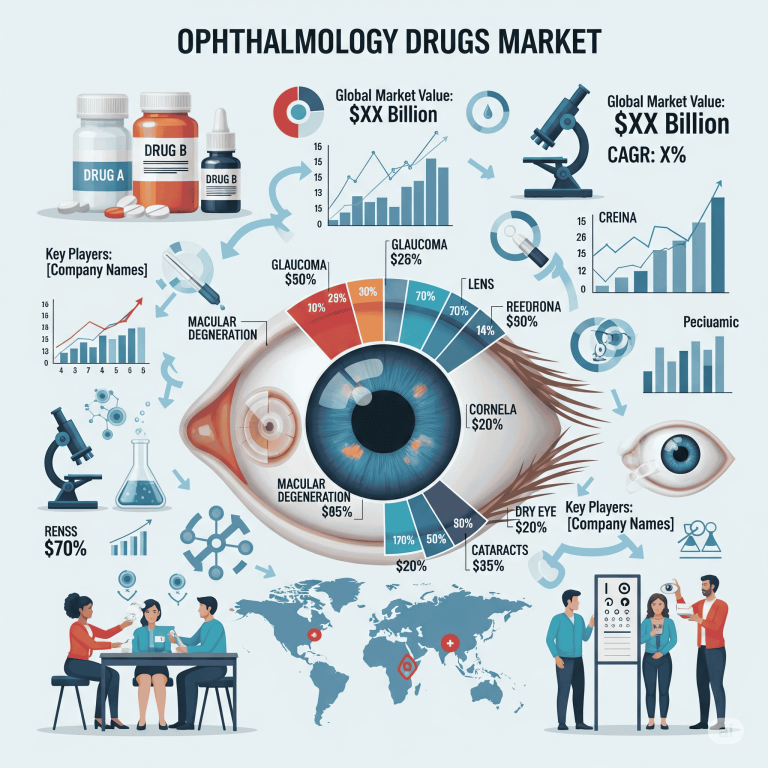
Sandhoff disease, a rare and fatal genetic condition, has long challenged the medical and scientific community due to its complex pathology and lack of approved cures. Yet, the tide is turning. Fueled by scientific breakthroughs, AI integration, and a surge in global research funding, the treatment landscape for this neurodegenerative disorder is evolving rapidly.
This case study explores the journey of the Sandhoff disease treatment market, analyzing its size, dynamics, key drivers, challenges, and future prospects.
Market Snapshot: Where We Stand
-
2024 Market Size: USD 260 million
-
2025 Forecast: USD 274.95 million
-
2034 Projection: USD 456.42 million
-
CAGR (2025–2034): 5.75%
These numbers underscore a steadily growing market, fueled by increasing diagnosis rates, advancing technologies, and a proactive approach to rare disease management.
The Growth Story: Key Catalysts
1. Innovation in Therapy Development
The demand for more effective treatment options has prompted both private firms and public institutions to delve into gene and stem cell therapies. These advanced therapies offer a potential path to repairing neurological damage and restoring enzyme functions, a groundbreaking possibility for patients suffering from Sandhoff disease.
2. AI’s Transformative Role
AI is transforming drug discovery and clinical trial design. From predicting disease progression to identifying immune responses and suitable drug candidates, AI is making personalized treatment more achievable—even in the complex realm of rare genetic diseases.
3. Robust R&D and Government Support
Government-backed initiatives like national rare disease registries, funding for clinical trials, and regulatory incentives (e.g., orphan drug designations) are accelerating progress. Notably, Bharat Biotech’s $75M investment in India’s first CGT (cell and gene therapy) facility marks a pivotal moment for emerging economies entering the rare disease space.
Invest in Our Premium Strategic Solution: https://www.towardshealthcare.com/price/5829
Market Segmentation: Insights and Trends
📌 Therapy Type
-
2024 Leader: Supportive & Symptomatic Treatment (64% share)
-
Future Star: Gene Therapy (fastest growth)
While symptomatic treatments currently dominate, gene therapy is rapidly gaining traction as clinical trials show promise in correcting the underlying genetic mutations.
📌 Disease Form Type
-
2024 Leader: Infantile Sandhoff Disease (71% share)
-
Emerging Focus: Adult Sandhoff Disease
Infantile forms show early onset and faster progression, spurring early diagnosis and therapy adoption. However, increasing awareness is shining a spotlight on adult cases, previously underdiagnosed.
📌 Drug Type
-
2024 Leader: Anticonvulsants & Muscle Relaxants
-
Most Promising: Experimental Gene Therapies
Seizure and muscle-related symptoms are commonly managed with established drugs. But gene therapies are becoming a beacon of hope due to their precision-targeting and long-term impact.
📌 Route of Administration
-
Top Choice: Oral Route
-
Game-Changer: Intrathecal/Intravenous
Oral options dominate for ease of use. However, intrathecal/intravenous routes are being explored for delivering therapies directly into the CNS—essential for neurodegenerative conditions.
📌 End Users
-
Current Dominator: Hospitals & Specialized Clinics (58% share)
-
Growth Engine: Academic Medical Centers
While hospitals remain the go-to centers for treatment, academic centers are pushing the boundaries of innovation through research, clinical trials, and government-supported initiatives.
Regional Outlook: A Global Opportunity
🌎 North America
Held 48% of global market share in 2024, largely due to mature healthcare infrastructure, active research institutions, and access to orphan drug programs.
🌍 Europe
Poised to be the fastest-growing region (2025–2030), supported by advanced biotech ecosystems and cross-border rare disease collaborations.
🌏 Asia Pacific
Rapid adoption of advanced healthcare technologies and increasing investments are driving momentum. China, for instance, is heavily focused on leveraging AI and biotech for treatment innovation.
Real-World Impact and Strategic Moves
-
India’s 2025 Milestone: A National Rare Disease Registry was introduced by ICMR to improve epidemiological insights and accelerate diagnosis.
-
Miltenyi Biotec India’s LOI with BIRAC: Aimed at strengthening India’s scientific ecosystem to tackle unmet needs in rare and autoimmune diseases.
-
Alltrna’s New Platform: Developing tRNA-based therapies to treat numerous rare genetic disorders collectively, offering a paradigm shift in disease management.
If you have any questions, please feel free to contact us at sales@towardshealthcare.com
Market Challenges: Low Incidence, High Complexity
Despite the optimistic growth projections, Sandhoff disease remains an ultra-rare condition, making clinical trials complex due to low patient recruitment. This directly impacts the feasibility of large-scale drug development and commercialization.
The Silver Lining: Growing Awareness
The shift toward early diagnosis and intervention—driven by awareness campaigns, educational initiatives, and digital health technologies—is changing the landscape. As more patients are diagnosed at earlier stages, the demand for effective therapies will continue to rise.
Source : https://www.towardshealthcare.com/insights/sandhoff-disease-treatment-market-sizing




